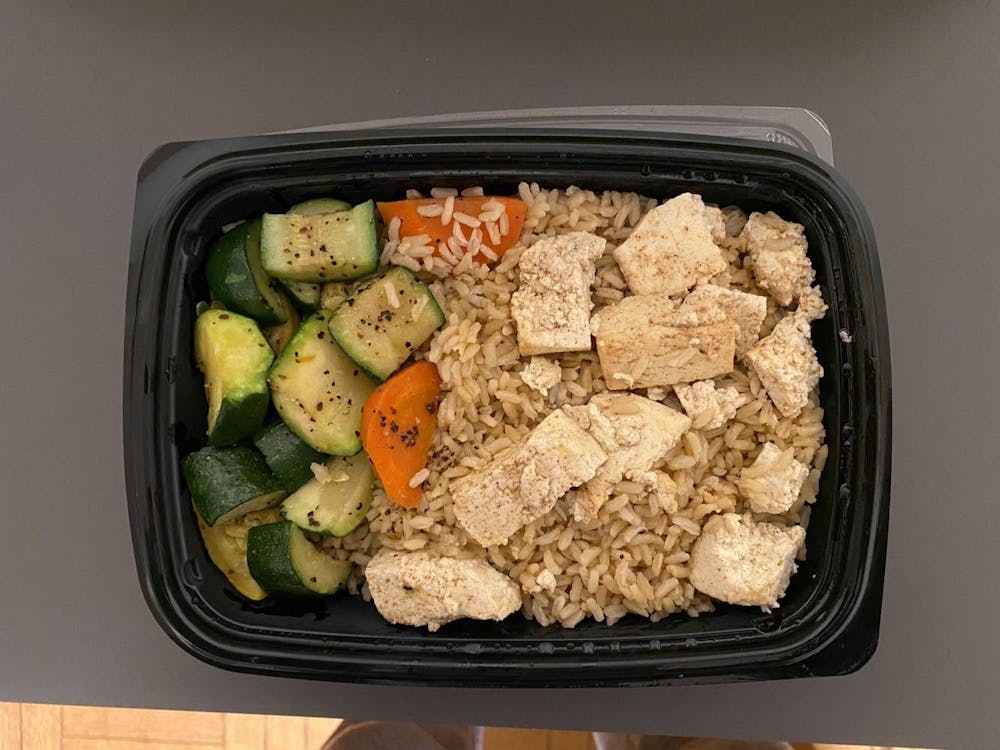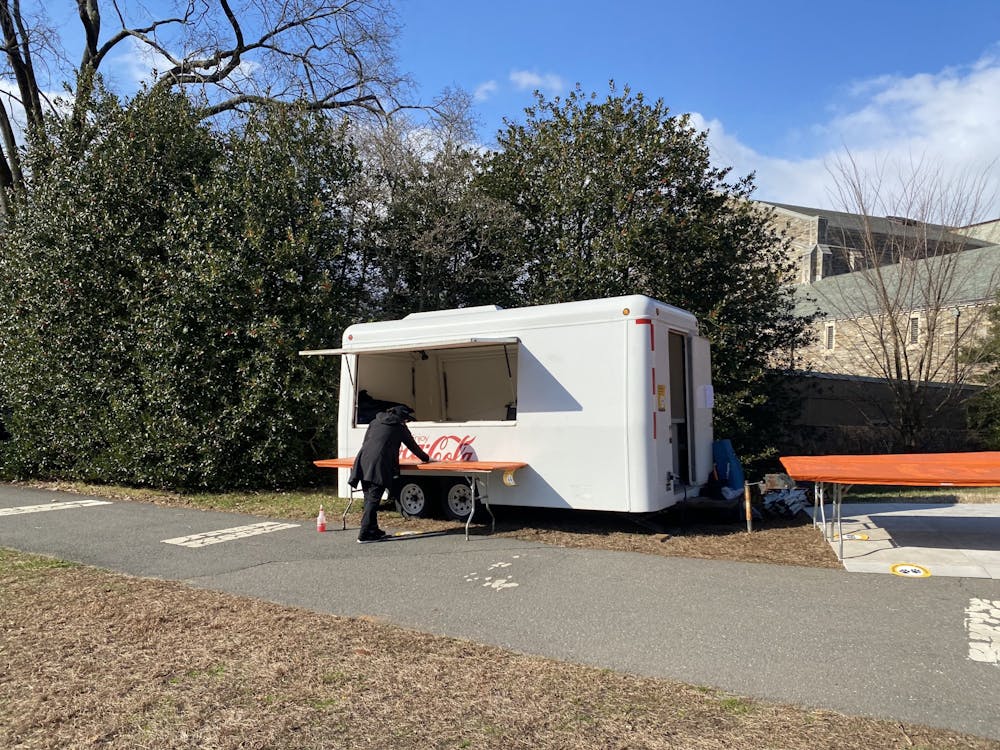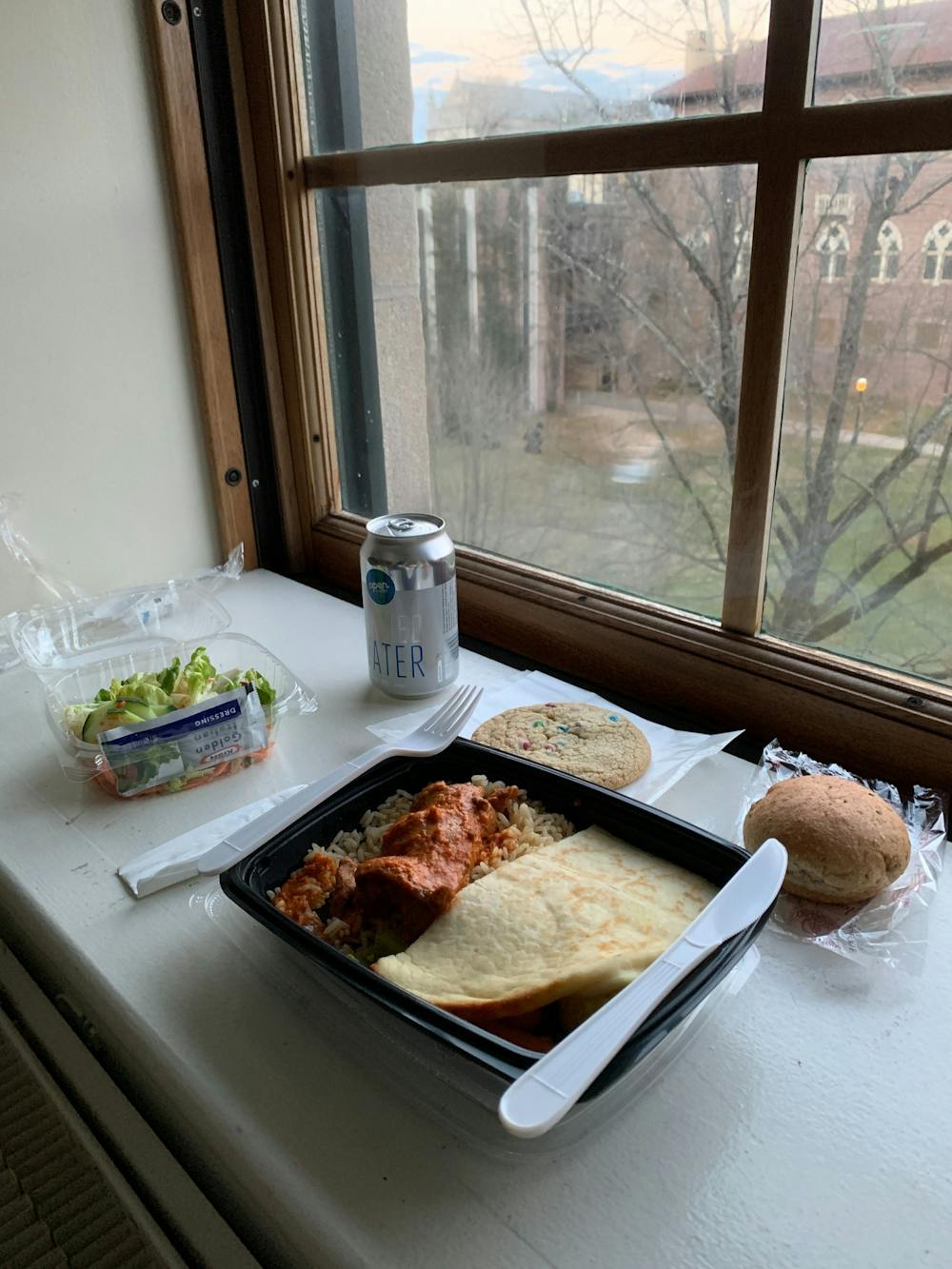Smitha Haneef has been preparing with excitement for January’s vast expansion of the campus population ever since the announcement that all undergraduate students would be welcomed back to the University campus for Spring 2021.
As Assistant Vice President for University Services, Haneef said that she and her team “didn’t lose a day in thinking about our operational planning in terms of how we might learn from the industry, whether it is from higher education or from companies or schools outside.”
The return of a much larger number of students posed a tough challenge for Campus Dining, as dining halls had to be de-densified and service pared back to quickly process students through serveries. In particular, food during the arrival quarantine process — during which students were largely confined to their rooms — had to be designed in a way that avoided potential transmission of COVID-19 after students’ arrival from across the world.
Upon their arrival on campus, students were given a packed bag containing one day’s worth of meals — a sandwich for their first lunch, a salad bowl for dinner, and a bagel and spreads for the following day’s breakfast — while under “strict quarantine” in their rooms. After their first negative COVID-19 test, at which point students were permitted to leave their rooms, students were assigned to one of 18 meal pickup locations throughout campus. They could pick up lunch during the day, as well as an evening bag that contained both dinner and the following day’s breakfast.
For students unable to leave their dormitories — because they were in isolation due to a positive COVID-19 test or because they were waiting longer than 24 hours for their first test result — Campus Dining delivered meals directly.
Additionally, each student received a variety of snacks (such as chocolate bars, cereal bars, and bags of popcorn), two cases of canned water, and a letter from Haneef welcoming students back to campus.
“In the event that there were some delays in our own service, or in the event that you just arrived after long travel, the idea was that there was refreshment available to the student,” said Haneef.
In designing menus for the semester, Campus Dining relied on legumes, rice, quinoa, and chicken in part for their sturdy nature. “An entrée or a side had to taste good, and hold good” after being chilled, packaged, and reheated, Haneef explained. Meals were designed to avoid the use of the eight most-seen allergens — including milk, eggs, and peanuts — as much as possible as well as respect students’ “dietary preferences, cultural preferences, and religious preferences.”
For Ella Feiner ’22, meals had left her “pleasantly surprised.” Feiner, who received the regular meals during arrival quarantine, had low expectations considering the logistical challenges posed by the safe distribution of meals to students.
“It’s definitely not the best food I’ve ever eaten, but it’s pretty decent,” she said. “I think they’re doing a good job and making an effort to accommodate people.”
She described the meals as varying from a “delicious” pulled pork and peppers to “not the best” pollock that arrived lukewarm. While the main components of her meal have varied, she explained that the sides had remained constant throughout arrival quarantine.
“I’ve gotten the same vegetable blend every day, and it’s fine, but it would be good to switch it up,” she said. The vast majority of her meals were also accompanied by the same rice, Feiner said.

The repetitive nature of arrival quarantine meals was also noted by Etiosa Omeike ’24, a vegetarian student and contributor for The Prospect who reviewed food on The Daily Princetonian’s TikTok account during the arrival quarantine period. Omeike described his arrival quarantine meals as “hit or miss” vegetables cooked in too much oil, “pretty awful” tempeh, and salads that “don’t taste like much.”
“Everyone I know has been ordering spices to spice things up,” he said, though he noted that “the fruit has been delicious.”
With no separate meal packages for vegetarians and vegans, vegetarians like Omeike were not offered products containing dairy, such as butter, despite being offered a dinner roll each night. “You have to pick whether to eat the piece of bread by itself, or you use the peanut butter that’s supposed to be for your bagels, or the jelly for your bagels,” he said.

An arrival quarantine vegan meal — tandoori tofu cutlet.
Etiosa Omeike / The Daily Princetonian
Haneef commented that a number of students had written to Campus Dining, with feedback largely expressing appreciation for the staff and for the “diverse menus,” though she noted that they had also received some criticism. Notably, after the arrival quarantine period ended, over 300 students signed on to an open letter directed toward Haneef expressing concerns about vegan and vegetarian options that the letter deemed repetitive and lacking in variety.
“We know that there are times where not all experiences have been great, but our approach has been, ‘we know we’re not going to be right all the time, but give us the opportunity to care for you,’” she said. To students with feedback, she said, “call us, email us, we’re right here.”
The volume of production made responding to student feedback challenging during arrival quarantine, but some “tweaks” in areas such as portion sizes were possible, Haneef added.
Though Omeike had mixed reviews for the food served over arrival quarantine, he particularly praised the work of the staff who distributed meals at the pickup point near Frist Campus Center. “They’re all super-duper nice,” said Omeike. “The entire process goes really smoothly, they’re communicative, welcoming, and approachable.” Feiner agreed, describing her daily chats with the staff at the Dillon East food truck as “one of the highlights” of being back on campus.

The “Dillon East” arrival quarantine food truck
Zachary Shevin / The Daily Princetonian
A number of the staff had been brought back from furlough, when Restaurant Associates, a company contracted by the University to run sites such as Prospect House and the EQuad Café, invited contracted workers back to campus to assist in the arrival quarantine process.
“Our heartbeat is when students are around,” said Haneef, commenting that staff across Campus Dining were excited to see students back in dining halls despite the additional workload created by public health restrictions.
The arrival quarantine meal system came to an end as classes resumed on Feb. 1, when the dining halls opened for student use. Much has been carried over from arrival quarantine to the dining halls, including the choice of a single meat or single vegan meal, pre-wrapped dinner rolls, and basic salads.
Though soup and a side of pasta in tomato sauce are now available and a wider selection of beverages is offered, meals have remained basic. Most meals consist of chicken or tofu, provided with a side of rice and a similar offering of vegetables each time.
Haneef described the “streamlined” menu as an effort to “maximize on the student experience, while at the same time making it contactless” for pickup. Despite noting the operational changes with staffing levels and capacity – many of which happened behind the scenes in kitchens and serveries – Haneef hinted that Campus Dining may tweak its services, as state and University restrictions change.
“We’re going to be very closely vigilant on the guidance that we’re getting to kind of build upon as the semester goes,” she said.








